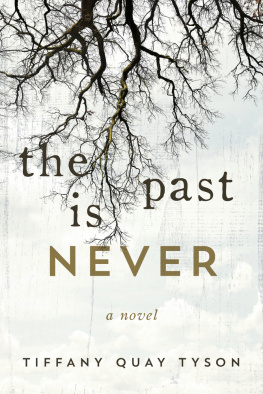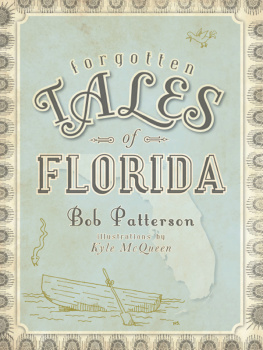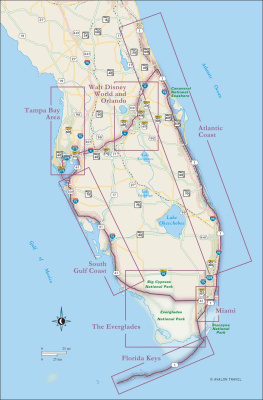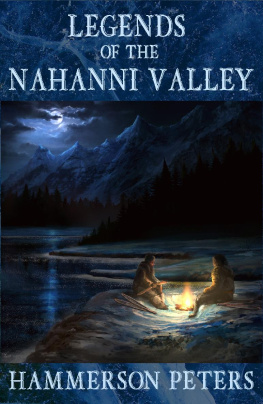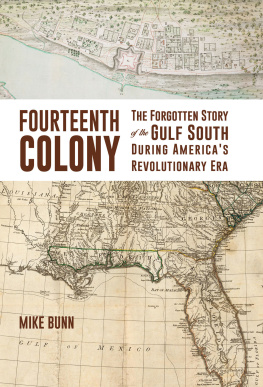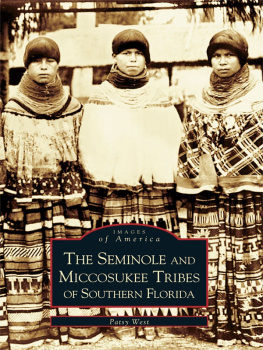Copyright 2018 by Tiffany Quay Tyson
All rights reserved. No part of this book may be reproduced in any manner without the express written consent of the publisher, except in the case of brief excerpts in critical reviews or articles. All inquiries should be addressed to Skyhorse Publishing, 307 West 36th Street, 11th Floor, New York, NY 10018.
First Edition
This is a work of fiction. Names, places, characters, and incidents are either the products of the authors imagination or used fictitiously.
Skyhorse Publishing books may be purchased in bulk at special discounts for sales promotion, corporate gifts, fund-raising, or educational purposes. Special editions can also be created to specifications. For details, contact the Special Sales Department, Skyhorse Publishing, 307 West 36th Street, 11th Floor, New York, NY 10018 or .
Skyhorse and Skyhorse Publishing are registered trademarks of Skyhorse Publishing, Inc., a Delaware corporation.
Visit our website at www.skyhorsepublishing.com.
10 9 8 7 6 5 4 3 2 1
Names: Quay Tyson, Tiffany, author.
Title: The past is never : a novel / Tiffany Quay Tyson.
Description: First edition. | New York : Skyhorse Publishing, Inc., [2018]
Identifiers: LCCN 2017042996 (print) | LCCN 2017046307 (ebook) | ISBN 9781510726833 (ebook) | ISBN 9781510726826 (hardcover : alk. paper)
Subjects: LCSH: Magic realism (Literature)--Fiction. | Delta (Miss. : Region)--Fiction.
Classification: LCC PS3617.U39 (ebook) | LCC PS3617.U39 P37 2018 (print) | DDC 813/.6--dc23
LC record available at https://lccn.loc.gov/2017042996
Cover design by Erin Seaward-Hiatt
Cover photo courtesy of iStockphoto
Printed in the United States of America
The past is never dead. Its not even past.
William Faulkner, Requiem for A Nun
For John, always
T HE CREATURE WATCHED AND waited. It crouched just beyond the trees or beneath the waterline or over the horizon, just beneath the shifting sugar sand or just above the clouds, up beyond the stars. It waited for me. It will wait for you, too.
I dont know how long I floated beneath the hot sun, how long I drifted in the land of alligators and crocodiles, where men walk on water, where God and the Devil shake hands, where the dead rise up to live again. At some point my body stopped sending signals to my fevered brain. I stopped wanting water or food. I stopped clawing at the stinging welts from the mosquitoes and black flies. The numbness from my leg spread across my body. Soon, I guessed, Id feel nothing at all. Thank goodness. Thank God.
My life never flashed before my eyes; instead it unfolded like a childs picture book. And other peoples lives, other peoples memories, other peoples stories came to me, as well. I recognized some of the people, and some were strangers to me, but I knew them all. We were joined together and there was no way to tell me from you or you from me, no way to separate sisters and brothers, mothers and fathers, friends and enemies. There was no past or future. Everything that ever happened existed in a single moment. We were all connected.
A large black bird circled above me, waiting for me to die. I smelled fires burning from one hundred years ago. I smelled the clean sweat of a man swinging a pickax. I smelled cornbread and stewed collard greens. I smelled the sweet scent of brambleberries growing wild in the haunted woods. I smelled stale smoke from my mothers cigarettes. I smelled the damp rotting decay of my fathers body. I smelled my sisters hair; it smelled of summer. I smelled the metallic threat of rain. I smelled my grandmothers lemon pound cake. I smelled my brothers clothes after a long night on the water, briny and sharp. I smelled mustard and onions. I smelled the damp clay from the quarry and the sulfur-ripe stench of spent fireworks.
People talk about heaven and hell, about seeing the light or the darkness, but I got no sense of an afterlife. No angels descended to comfort me. No fire-and-brimstone visions. Only a man in a boat. A man both familiar and strange. And as I floated across the water, I wished I could go back. I wished I could return to the day when we first came here, when we first navigated the fresh rivers and the brackish swamps, when we swung beneath the mangrove tunnels, our monkey arms sunburnt and tight, when the swamp chicken called us forward, when the anhinga stretched, stretched, stretched its wings, when we touched pineapple plants sprouting from nothing more than humidity and hope, when we saw the strangling fig choke the bald cypress and I mistook it for a hug.
But no.
I wished to go back even further.
I wished to go back to the beginning. Or I wished to skip forward to the end. It came to me, floating on that small boat in the Gulf of Mexico: the beginning and the end were the same thing.
And monsters were everywhere. And dead men walked on water.
ONE

White Forest, Mississippi
1976
I T WAS A UGUST AND hotter, somehow, than July, a heavy, smothering heat that left us sticky and restless even in the dark of night. It rained most afternoons in the Mississippi Delta, violent thunderstorms from soft gray skies. The rain should have brought relief but when the clouds parted and the sun came out, steam rose from the dead grass and the cracked asphalt and the brown fields, and it was hotter still. Folks who believed in voodoo or signs from above said the heat was a warning. We didnt believe in superstitions back then, but we were wrong to dismiss things we could not see.
In the summer of the bicentennial, we wore red, white, and blue. The cheap colors faded quickly, like sparklers burning out on a summer evening. We spent the long sweltering days together. We watched bad sitcom reruns on television, ate sugary cold cereal for lunch, read books we pulled from dusty shelves, and complained about the heat and the humidity and the boredom and our lives.
Willet, at sixteen, complained the loudest. Its hottern a bitch in heat, hed yell upon waking. Or Im sweating like a pimp in Sunday school! He refused to wear a shirt or shoes. Teenage boys could get away with being crude and half-dressed, but girls had to remain fully clothed and werent allowed the relief of profanity. Instead of cussing, we whined. Pansy, just six years old, had mastered the skill of prying ice from the plastic tray in the freezer. Shed suck on the cubes while lying still as a corpse in front of the box fan in the living room. The heat left me restless. Like any fourteen-year-old girl, I yearned for something new to happen, something different or interesting or scandalous.
I sat beside Mama on the living room couch, an old, faded, overstuffed floral monstrosity that once belonged to her mother, the grandmother for whom I was named. I lifted a thin blue towel from the plastic basket to fold. You can bet Willet and Pansy never helped with the laundry. Where is Daddy? What is he doing? When will he come home? Why does he leave? My questions went on and on.
Our father had been gone for three weeks. Hed disappeared the week after the towns Fourth of July celebration, when Id eaten myself sick on hot dogs and peanut brittle, when Willet had nearly lost a finger to a Roman candle, when Pansy had fallen asleep under the live oak in front of the courthouse. His absence wasnt unusual. Daddy often disappeared for a stretchtraveling for work, he saidbut the details of his work were vague. He wasnt like other fathers. He didnt sit behind a desk all day or wear a tie. He didnt come home at night and sit in front of the television with a stiff drink. He didnt mow the lawn on weekends or putter around in our garage. He wasnt interested in the news of the day. Daddy lived in the past, in the murky netherworld of legend and lore. Everything that might happen in this world has already occurred , he would tell us. There is nothing new . Daddy showed up and disappeared without warning. We were expected to be glad to see him, and mostly we were. He was charming in the way dishonest men have to be and too handsome for his own good. He bore a striking resemblance to Paul Newman. He said so himself.

